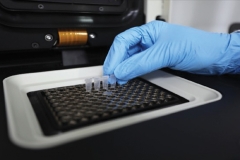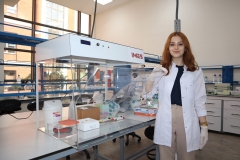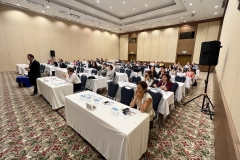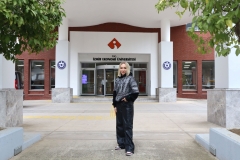
FACULTY OF ENGINEERING
Department of Biomedical Engineering
Courses
In this course, the main aspects of engineering history, the fundamentals of ethics in engineering, the analysis of engineering applications from an ethical perspective, the environmental, social, and economic sustainability of engineering applications. The public health and safety impacts of engineering applications, the fundamentals of entrepreneurship and innovation, success stories of entrepreneurial engineers, the methods of obtaining scientific information, the usage of scientific databases will be covered.
In this course, we will discuss the subjects of motion along a straight line, motion in two and three dimensions, Newton’s laws, work and kinetic energy, potential energy and conservation of energy, momentum, collisions, dynamics of rotations, gravitation and periodic motion.
The course will help students recognize the skills needed for university life and their career goals. These skills include self-awareness, goal setting, time management, effective communication, mindfulness and analytical thinking. The course will also raise students’ awareness on problems such as addiction and bullying.
This course aims at preparing students to use academic skills in English.
The contents of this course is: matter and measurement (precision and accuracy), atoms, molecules, ions, and their properties, stochiometry and chemical calculations, chemical reactions in aqueous solutions, thermochemistry, atomic structure, electron configurations, atomic properties and the periodic table.
Calculus I provides important tools in understanding functions of one variable and has led to the development of new areas of mathematics.
The course will cover basic engineering concepts such as units, engineering analysis and design process. The second half of the course will be dedicated to program-based introductory content.
In this course, we will cover the topics of electric field and charge, Gauss’s law, electric potential, capacitance and dielectrics, current, resistance and electromotive force, direct-current circuits, magnetic field and magnetic field sources and induction.
ENG 102 is a compulsory course for first year students. ENG 102 focuses on the cognitive skills of listening, reading, writing and speaking. Students' academic listening skills will be improved by listening to important / relevant information from lectures or discussions and reading skills by reading recent academic texts and then using this information to create an output task. Speaking focuses on giving presentations and students get prepared to express their ideas and opinions by speaking persuasively and coherently. The writing component is a consolidation of the speaking activities.
In this course, integration techniques and application of integration, Taylor and Maclaurin series and their applications, functions of several variables, their derivatives, integrals and applications are examined.
Course Content This course introduces the students to the fundamental concepts of programming using Python programming language.
The structure and metabolism of carbohydrates, lipids and proteins, enzyme kinetics, energy synthesis in living organisms, DNA replication and repair, the flow of genetic material.
The following topics will be included: DC analysis of resistive networks, operational amplifiers, time-domain analysis of first order (RC, RL) circuits, analysis of complex circuits using phasor, derivation and plot of transfer functions, frequency-domain analysis of second order (RLC) circuits.
DNA replication mechanisms, DNA repair, gene transcription, and protein translation
The main subjects of the course are the vector and matrix operations, linear independence and dependence of vectors, linear vector spaces and subspaces, dimensions and basis vectors for vector spaces, linear transformations, determinants, eigenvalue and eigenvectors.
In this course basic concepts of differential equations will be discussed.The types of first order ordinary differential equations will be given and the solution methods will be taught. Also, solution methods for higherorder ordinary differential equations will be analyzed.
In this course some important theorems about probability are investigated. In addition, applications of random variables and their probability distributions are discussed.
The course will cover many subjects including binary logic, combinatorial and sequential circuit design, state machine design techniques, instruction set architectures, and finally basic processor design.
This course covers the definition of microscopic and macroscopic structures and functions of systems that make up the human organism.
The course focuses on technical writing and oral presentation skills by engaging students in project work related to their departments. It also covers language areas specific to the genre of technical reports, summaries and project proposals.
Topics covered include time domain analysis of continuous-time and discrete-time signals and systems; Fourier series and periodic signals; Fourier transform; sampling and discrete-time Fourier transform; Laplace and Z transforms.
The course covers chemical thermodynamic, chemical kinetics, mass transport, fluid mechanics and biomedical applications.
This course focuses on sampling distributions, statistical estimation, hypothesis testing, simple and multiple linear regression. In addition, experimental design and applications of these methods to industrial systems engineering are discussed.
This course covers, modeling of semiconductor components used in biomedical electronic circuits, Physical electronics of PN junctions, Simple diode circuits, rectifiers, and voltage regulators. Bipolar Junction Transistors (BJT), Field Effect Transistors (FET) and MOSFET transistors, Amplifier circuits, Direct current and small signal analysis, Amplifier frequency analysis, and Oscillators.
Principles of physics in medical imaging, imaging methods that do and do not utilize X-rays and digital image processing is reviewed by an approach of performance analysis on system basis.
The course covers structure and properties of biomaterials, application areas of such materials, processing and degradation and biocompatibility of biomaterials
The course contains principles of clinical management along with technical lessons on healthcare equipments to give the student technical management skills for clinical environment.
This course covers fundamentals of biomechanics, musculoskeletal system, engineering applications on musculoskeletal system, types of orthopedic implants and their mechanical analysis.
This is a 6th semester mandatory course on Biomedical Systems and Devices area. The objective of this course is to introduce the biomedical instrumentation and measurement, basic flow, pressure and volume measurement techniques. The course will first cover generation of biopotentials and different techniques to measure them. Working principles of electrodes, sensors, transducers, amplifiers, electrocardiographs (ECG), electroencephalographs EEG) will be covered.
Students will be taught how to use the written and verbal communication tools accurately and efficiently in this course. Various types of verbal and written statements will be examined through a critical point of view by doing exercises on understanding, telling, reading, and writing. Punctuation and spelling rules, which are basis of written statement, will be taught and accurate usage of these rules for efficient and strong expression will be provided. As for verbal statement, students will be taught how to use the body language, use accent and intonation elaborately, and use presentation techniques.
The design, analysis and business-plan development of a project by teams of students by using engineering techniques; preparation of project reports and presentation by using state-of-the-art tools and methods.
Students in teams can specify, analyze and handle business plan of a project using engineering fundamentals. They can realize and implement the project using emerging tools. They can report and present all the details of their final product.
This course provides a general information of the events from the end of the 19. century until the end of the Turkish War of Independence and the signing of the Treaty of Lausanne in 1923 and the following period until 1990’s.
Elective Courses
BME 302 Current Topics in Biomedical Engineering
Tissue engineering, bio- and nano-materials, prosthetics, biomechanics, genetics, clinical trials, ethics
BME 303 Electromagnetic Theory
Columbian law, electrostatic field, potential, electric flux and Gauss's law. Vectors and concepts of electromagnetic, electrostatic, magnetostatic field, electromagnetic fields in different materials; Maxvel equations and Lorentz force law as integral and derivative for time-changing fields; potential functions; energy accumulation, stationary and quasi-stationary areas; Solutions of Poisson and Laplace equations in spherical and cylindrical coordinate systems; dielectric material and shelter concept. Stationary electrical energy and forces. Regular electric currents, Ohm and Kirchhoff laws, electric charge avoidance and continuity equation. Joule's law. BiotSavart law and stationary magnetic field. Ampere's law and vector magnetic potential. Magnetic materials, forces and cycles. Faraday laws, magnetic energy, displacement currents and Maxwell equations. Lumpy and distributed circuits. Reflection, transmission, weakening, dispersion and spreading events in transmission lines.
BME 307 Biosensors
The course covers Bioelectronic devices, Potentiometric, amperometric, Optical, Fluorescent, colorimetric and other biosensor systems, Enzyme electrodes, substrate electrodes, immunosensors, aptamer sensors, new approaches in biosensors.
BME 308 Medical Informatics
The course covers biomedical data, standards in medical informatics, electronic record systems, health organisations, patient care systems
BME 310 Introduction to Bioinformatics
The course covers terminology used in bioinformatics, introduction to online and offline tools and databases, basic analysis techniques of biological sequences, comparison methods.
BME 311 Computational Bioinformatics
The course covers algorithms used for sequence alignment, motif discovery in DNA and protein sequences, clustering protein networks, protein complex discovery using interaction networks, phylogenetic tree construction and next generation sequencing.
BME 315 Molecular Biophysics
This course covers binding interactions and forces determining the biomolecules/biopolymers, structural-functional and dynamical features of biomolecules (nucleic acids, proteins, lipids etc.), enzyme mechanisms, cell membrane dynamics, membrane proteins, transport, physics of neurons, thermodynamics, bioenergetics, radiation processes, biomedical spectroscopy, infrared spectroscopy, and novel approaches in nanobiomedicine and biomedicine.
BME 403 Biomedical Signal Processing
This course explains the time and frequency time domain analysis of random biological signals, the concepts of time and group mean and high degree moment, modeling of random signals, the concept of estimation, filtering, stationary random processes.
BME 404 Biomedical Image Processing
Principles of acquisition, storage, visualization, and processing of medical image data. Sampling and quantization. Picture archiving and communication systems, Medical image formats. Basic and advanced image processing algorithms.
BME 405 Biomedical Optics
The course contains lectures and practical case studies on various light sources as well as optical elements commonly used in bimedical engineering field.
BME 406 Robotics and Biomechanics
The course covers the definition and history of biomechanics and robotics, biologic and robotic actuators, sensor systems, actuator control, principles of locomotion, evolution of robotics, use of robotics in modern medicine.
BME 407 Artificial Organs and Life Support Systems
This course includes introduction to artificial organs, the importance of mass transfer in these systems, basic reactions in biological systems and knowledge of biomaterials, basic principles and applications of artificial organ design.
BME 408 Biomedical Polymer Technologies
Introduction to polymer science, properties of polymers, polymerisation techniques, characterisation of polymers, biomedical applications of polymers, Biopolymer processing, drug delivery systems, biodegredation and biodeterioration, chemical synthesis of biopolymers, synthesis of natural biopolymers, and future of biomedical applications of polymers.
BME 410 Biomedical System Design
This course covers basic knowledge in design tools and development methods, test and analysis, regulations for manufacturing and documentation methods, in a perspective of application in industry.
BME 411 Radiation Physics
Radioactivity, types of radioactive decay, half-life calculations, x-ray sources, radiation measurement, dosage calculations, radiation safety equipment and gamma cameras are among the topics to be covered within the discipline
BME 413 Bionanotechnology
The course covers structure of bionanoparticles and properties of bionanotechnology, application areas of this technology, processing and trends.
BME 414 Characterization Methods in Nanotechnology
This course includes the importance of characterization and usage areas of different characterization methods, points to be considered in characterization and current studies on the subject.
BME 420 PCR-based Molecular Diagnosis
The course covers the definition and history of polymerase chain reaction (PCR) method and how this method evolved through the years. The course covers principles of modern PCR methods and basic application of a PCR protocol starting from sample preparation to evaluation of the results obtained from PCR instruments. The course covers the introduction to common genetic and communicable diseases and PCR applications for their diagnosis in modern medicine.
BME 425 Biostatistics
This course includes the basic concepts and types of biostatistics, the classification of data, the selection of the appropriate statistical analysis for the problem, the application of the test after the hypothesis, and the evaluation of the results.
BME 427 Adaptive Processing of Biomedical Signals
This course covers an introduction and modeling of random processes that generates random biological signals, stationary processes, linear optimum (Wiener) filtering, linear adaptive filtering, steepest descent, LMS and RLS learning algorithms and Kalman filter theory.
BME 429 Biomedical Signal Processing Using MATLAB
This course covers the implementation of digital signal processing methods and algorithms using MATLAB software in computer environment. It covers simulations of discrete time signals and systems, frequency analysis, system analysis and implementation, digital filter designs and biomedical engineering applications.
BME 431 Micro-Electro-Mechanical Systems in Biomedical Applications
The course covers basic definitions and principles, design characteristics, manufacturing technologies for microfluidic and micro-total-analytic-system (µTAS) structures, micro electrical, micro mechanical and micro optical sensors, MEMS, bioMEMS and their applications for biomedical purposes including Lab-on-a-Chip analysis, implantable sensors and drug delivery.
BME 436 Medical Device Policies and Regulations
The course covers recommendations of World Health Organization, framework policies and resolutions and regulations about medical devices in Turkey and globally; also the principles of Medical Device Directive, quality management system for medical devices and similar legal regulations and directives for medical device manufacturers and importers.
CE 322 Pattern Recognition
Learning and adoption, Bayesian decision theory, discriminant functions, parametric techniques, maximum likelihood estimation, Bayesian estimation, sufficient statistics, non-parametric techniques, linear discriminants, algorithm independent machine learning, classifiers, unsupervised learning, clustering.
CE 342 Fundamentals of Microprocessors
This course discusses various aspects of the most important component of a computer, the microprocessors. The topics include the fundamental concepts of microprocessors and the relationship between assembler and basic components of a computer, 80x86 family architecture, 80x86 based assembly language programming, computer organization and architecture of the PC.
CE 344 Advanced Machine Learning
Course discusses several advanced techniques such as training data collection, learning in order to extract statistical structure from data, over-fitting, parametric models and parameter selection, validation, regression, classification, nonparametric models, clustering.
CE 345 Introduction to Machine Learning
Machine learning is concerned with computer programs that automatically improve their performance with past experiences. Machine learning draws inspiration from many fields, artificial intelligence, statistics, information theory, biology and control theory. The course will cover the following topics;concept learning,decision tree learning ,artificial neural networks , instance based learning,evolutionary algorithms ,reinforcement learning ,Bayesian learning , computational learning theory.
CE 395 Special Topics in Machine Learning
The following topics will be included: sampling and information theory, digital filters and discrete Fourier transform, basics of vector and matrix manipulations, basics of numerical optimization, principles of statistical learning theory.
CE 455 Deep Neural Networks
The following topics will be included: feed-forward neural networks, back-propagation, convolutional neural networks, recurrent neural networks, recursive neural networks, regularization, optimization.
CE 466 Computer Vision
The following topics will be included: image formation, image processing, feature detection and matching, segmentation, feature-based alignment, structure from motion, dense motion estimation, image stitching, computational photography, stereo correspondence, 3D reconstructions, image-based rendering, and recognition.
CE 470 Introduction to Neural Networks
The following topics will be included in the course: The main neural network architectures and learning algorithms, perceptrons and the LMS algorithm, back propagation learning, radial basis function networks, support vector machines, Kohonen’s self organizing feature maps, Hopfield networks, artificial neural networks for signal processing, pattern recognition and control.
CE 490 Introduction to Digital Image Processing
The following topics are included: Digital images as two-dimensional signals; two-dimensional convolution, Fourier transform, and discrete cosine transform; Image processing basics; Image enhancement; Image restoration; Image coding and compression.
EEE 322 Engineering Electromagnetics
EEE 346 Fundamentals of Control Systems
This course includes subject areas such as analysis and synthesis of continuous and sample data linear feedback control systems. properties and advantages of feedback systems, time-domain and frequency-domain performance measures, stability and degree of stability, the Nyquist criterion, frequency-domain control system design, the Root-locus method and application to a wide variety of physical systems.
EEE 413 Digital Signal Processing
Topics covered in class mainly include principles and applications of digital signal processing. Representation, analysis, and design of digital signals and systems. Discretetime processing of continuoustime signals. Frequency domain representations: Fourier series and transforms. Decimation, interpolation, and sampling rate conversion. Time and frequencydomain design techniques for recursive (IIR) and nonrecursive (FIR) filters. Discrete Fourier transform (DFT) and fast Fourier transform (FFT). Shorttime Fourier analysis and filter banks.
EEE 461 Embedded System Design
This course covers the introduction of 8 and 32 bit microcontrollers and their peripherals, registers, serial communication with other microcontrollers and main computer; design of a microcontroller based device; design of printed circuit board; coding and uploading the firmware and all steps including the testing of device for the application.
FENG 345 Numerical Methods for Engineers I
Solutions of system of linear equations, iterative methods, interpolation, cubic splines, numerical differentiation, numerical integration, numerical solution of nonlinear equations, initial value problems, numerical solution of ordinary differential equations, finite difference method, engineering application problems.
FENG 346 Numerical Methods for Engineers II
In this course, the following topics will be covered, with a special focus on practical applications: the importance of optimization, basic definition and facts on optimization problems, theory of linear programming, nonlinear programming (constrained and unconstrained optimization problems), numerical methods for constrained and unconstrained problems, numerical solution of partial differential(elliptic and parabolic) equations.
GBE 208 General and Molecular Biology 2
The internal organization of the eukaryotic cell, organelle and membrane function, cell-cell signaling, cell transport and secretion, the extracellular matrix, cell division and apoptosis will be introduced. Also, stem cells, tissue regeneration and repair and iPSCs technology will also be explained.
GBE 307 Biotechnology
This course covers the basic concepts of biotechnology and the methods used in the manipulation of nucleic acids (DNA and RNA). Bioethical issues relating to this new technology will also be discussed.
GBE 310 Stem Cells
Embryonic stem cells, Haematopoietic stem cells, Adult stem cells, tissue engineering, cell therapy, drug discovery.
GBE 340 Cell Death Mechanisms
This course covers the description of molecular mechanisms of cell death including apoptosis, autophagy, necrosis, necroptosis, lysosome-dependent cell death, entosis, anoikis, ferroptosis, pyroptosis, anastasis, mitotic death and immunogenic cell death.
GBE 350 Ethics in Science and Research
The course will explore the ethics in science and research with an emphasis on biological sciences. The students will become familiar with common ethical debates in science including the topics listed as: misconduct in research, conflicts of interest and scientific objectivity, publication and peer review, intellectual property, ethical decision-making, dual-use of research, principles of ethics in science for model organisms and human beings.
GBE 355 Microbial Biofilms
This course covers the formation of microbial biofilms, the structure and functions of the extracellular polymeric substance synthesized in biofilm formation, environmental signals and intracellular and intercellular signaling networks regulating the biofilm formation and dispersion processes, and biofouling on surfaces, chronic infections and implant-associated infections caused by biofilms. In addition, this course also provides information on the current strategies developed to combat biofilms.
GBE 360 Cell Signaling
Basic principles of cell signaling. Characterization of signalling components: signalling molecules, receptors, second messengers, effectors, signalling complexes. Basic classification and characterization of membrane receptors. Intracellular/nuclear receptors. Major signalling pathways.
GBE 370 Molecular Immunology
This course will include discussion of the properties of innate and adaptive immunity, the cells of the immune system. Additionally, students will learn about antibody structure and function, antigen recognition, lymphocyte activation, and immunity to microbes. Immunity that relates to diseases will also be covered including autoimmunity, transplantation, immunity to viruses and tumor immunology.
GBE 402 Cellular Therapy and Regenerative Medicine
The mechanisms of vertebrate regeneration, animal models and techniques used in regenerative therapies will be introduced.
GBE 403 Cell Culture Techniques
Cell culture, Sterile conditions, Primary cell culture, Cell lines, Culture of stem cells and tumor cells, Three-dimensional cell culture
GBE 406 Gene Control and Epigenetics
This course explains the gene control mechanisms that affect development and deteriorate in disease. The course covers epigenetic markers and related techniques to identify differences in gene regulation.
GBE 407 Genomics and Proteomics
Definition and application areas of genomics and proteomics approaches, structural genomics, functional genomics and usage of comparative genomic, analysis of genomes of livings, proteomic analyses. Recombinant DNA methods, genetically modified plants and animals and their use will be introduced.
GBE 440 Gene Therapy
This course covers the description of fundamentals of gene therapy, viral and non-viral gene delivery techniques, and use of gene therapy as a treatment strategy.
GBE 450 Pharmaceutical Development and Regulatory Affairs
This course describes the managerial process of pharmaceutical product development with examples and case studies by highlighting the technical and regulatory challenges.
IE 313 Human Factors Engineering
HFE is the part of engineering most closely concerned with humans. HFE is also called Ergonomics. HFE deals with the capabilities and limitations of human beings as they relate to the design, improvement, and operation of equipment, tools, machinery, computers, automobiles, airplanes, working and living environment, organizational structures, communication systems, etc.
IE 372 Project Management
This course covers topics related with IE372 and ISE 380
MATH 400 Biomathematics
Biological applications of difference and differential equations. Biological applications of nonlinear differential equations. Biological applications of graph theaory.
MATH 462 Applied Statistics
This course provides several basic methods for analyzing statistical data appear in various fields of science.
MCE 303 Sensors and Actuators
The main topics included in this course are elements of interface mechanics-electronics (sensors and actuators), circuits for supplying actuators, circuits for conditioning signals from sensors, physical values and role of sensors and actuators in measurement.
ME 305 Fluid Mechanics
This course covers the fundamental concepts of fluid mechanics, properties of fluids, hydrostatic pressure force on plane and curved surfaces, pressure changes in fluid movement, the Bernoulli's equation, momentum, mass and energy balances, dimensional analysis, viscous flow in pipes, laminar and turbulent flows, and major and minor losses.
MED 220 Research Skills in Biomedical Sience
Within this course, the key elements of scientific thinking and key points for writing a scientific project along with ethical issues in research will be covered in detail within the scope of Biomedical Research. The key elements of scientific thinking, will cover observation, asking critical questions, developing a testable hypothesis, collecting and analysing data and making a logical conclusion. The key points for writing a scientific project will cover the title, aim, literature review, project uniqueness, methods, project and risk management, common domains and reporting the findings. Ethical issues will also be covered within the scope of the course.
SE 420 Artificial Intelligence and Expert Systems
This course provides an introduction to Artificial Intelligence (AI). In this course we will study a number of theories, mathematical formalisms, and algorithms, that capture some of the core elements of computational intelligence. We will cover some of the following topics: search, logical representations and reasoning, automated planning, representing and reasoning with uncertainty, decision making under uncertainty, and learning.
NEWS |ALL NEWS

Biomedical Engineering Erasmus Agreement was signed with Universidad Jaume University, Spain
The signing process for the agreement with Universidad Jaume for Biomedical Engineering has been completed. Our students can add this university to

OCCUPATIONAL HEALTH AND SAFETY TRAINING
Within the scope of BME 318 course, an Occupational Health and Safety Seminar was given to Biomedical Engineering students by our University's

An Oligonucleotide Story by Assoc. Prof. Dr. Osman DOLUCA
Within the scope of the Biomedical symposium organized by İzmir Katip Çelebi University Biomedical Society, our department chair, Assoc. Prof. Dr. Osman

Projects were entitled to receive support within the scope of the TÜBİTAK 2209-A
We congratulate our students and wish them continued success.

Important breakthrough in virus detection
Assoc. Prof. Dr. Osman Doluca, Acting Head of Department of Biomedical Engineering, Izmir University of Economics (IUE), reported that they have developed

'Smart cabinet' against the virus
Assoc. Prof. Dr. Osman Doluca and his 4 students from Izmir University of Economics (IUE) developed a 'PCR cabinet' that allows samples




